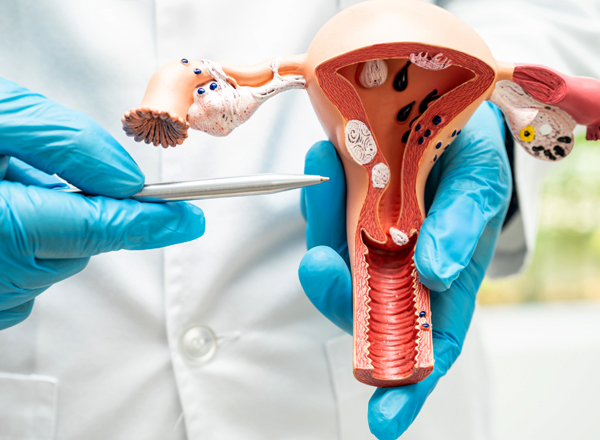
Fibroids, also known as uterine fibroids or leiomyomas, are noncancerous growths of the uterus that often appear during childbearing years. These tumors are made up of muscle and fibrous tissue and can vary in size. Some women with fibroids may not experience any symptoms, while others may have significant discomfort and complications.
Key points about fibroids include:
-
Prevalence: Fibroids are quite common, and many women may have them without being aware of it. They are most often diagnosed during a pelvic exam or prenatal ultrasound.
-
Symptoms: The symptoms of fibroids can include heavy menstrual bleeding, prolonged periods, pelvic pain or pressure, frequent urination, difficulty emptying the bladder, constipation, and backache or leg pains.
-
Causes: The exact cause of fibroids is not known, but they are linked to estrogen and progesterone levels. Genetic factors, hormonal changes, and other growth factors may also play a role in their development.
-
Diagnosis: Fibroids are often diagnosed through a pelvic exam, ultrasound, or other imaging techniques. In some cases, further tests like hysteroscopy or MRI may be done for a more detailed evaluation.
-
Treatment options: Treatment for fibroids depends on the severity of symptoms, the size and location of the fibroids, and whether a woman is planning to conceive. Treatment options may include medications, non-invasive procedures like uterine artery embolization, or surgical interventions such as myomectomy or hysterectomy.
-
Pregnancy and fertility: Fibroids can sometimes interfere with fertility or lead to complications during pregnancy, such as a higher risk of cesarean section. However, many women with fibroids have successful pregnancies. It's important to discuss any concerns with a healthcare provider.
-
Management: For women with mild or no symptoms, regular monitoring may be sufficient. Lifestyle changes, such as maintaining a healthy weight and managing stress, may also help manage symptoms.
If you suspect you have fibroids or are experiencing symptoms, it's essential to consult with a healthcare professional for a proper diagnosis and appropriate management plan tailored to your individual situation.
